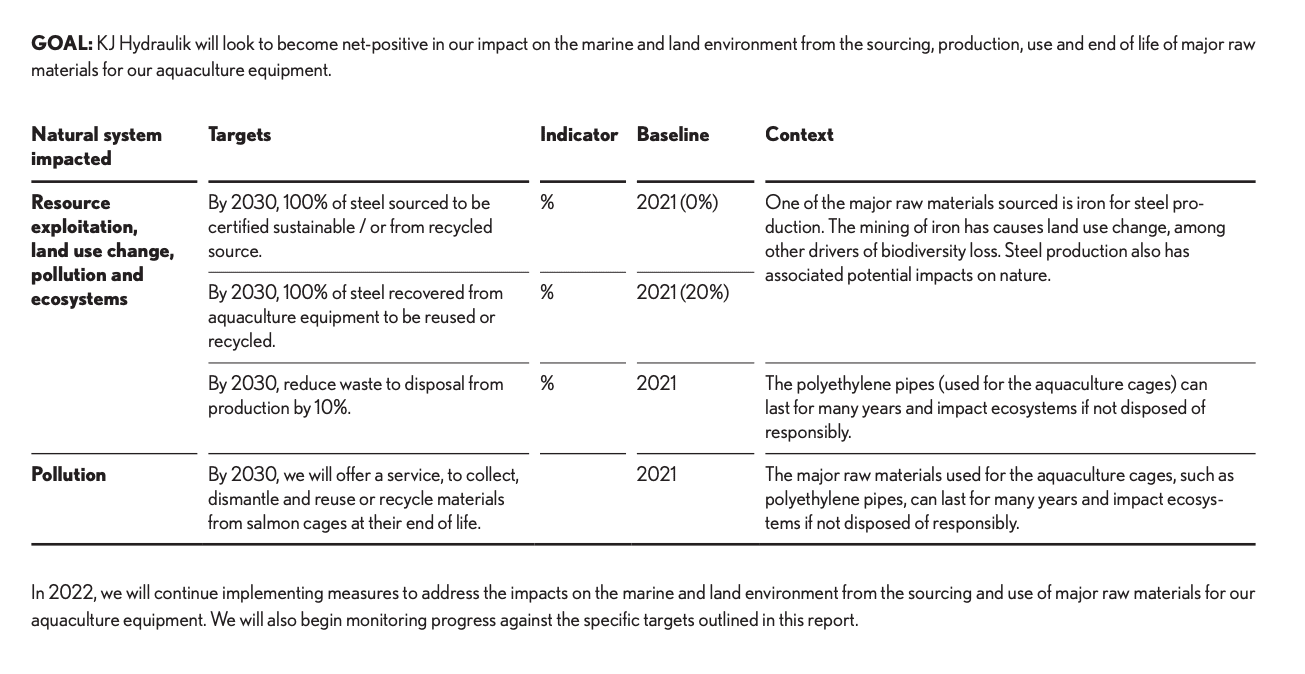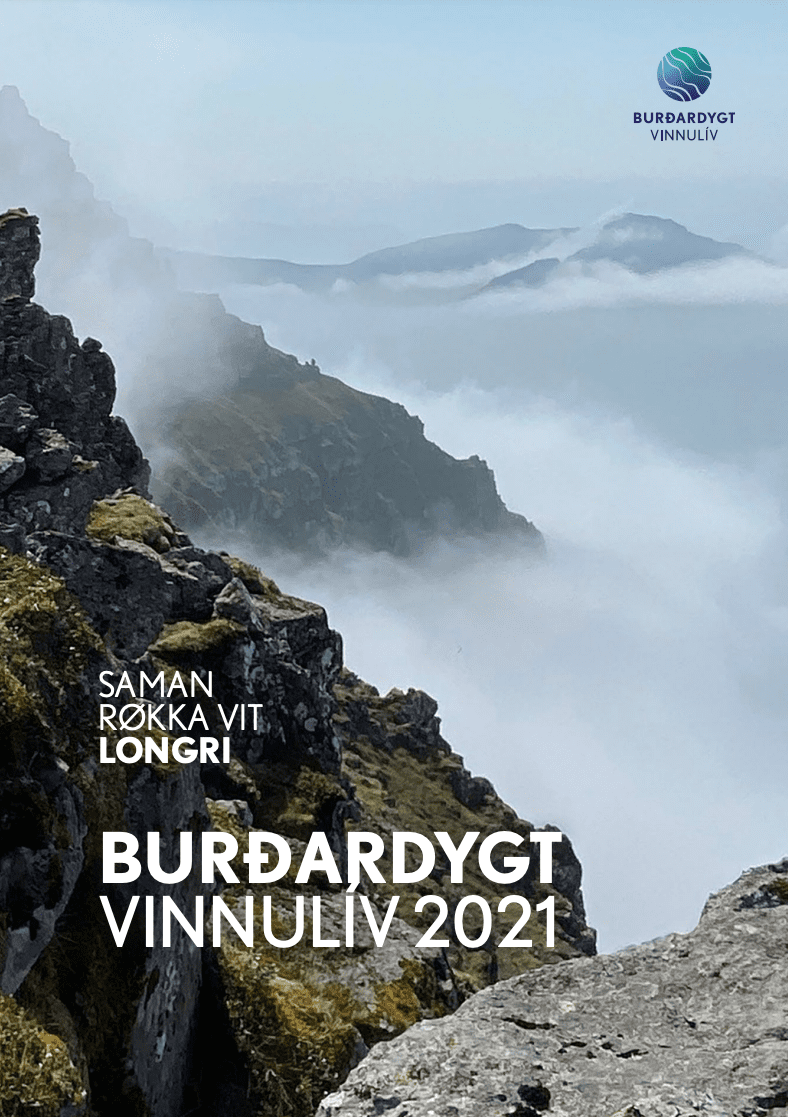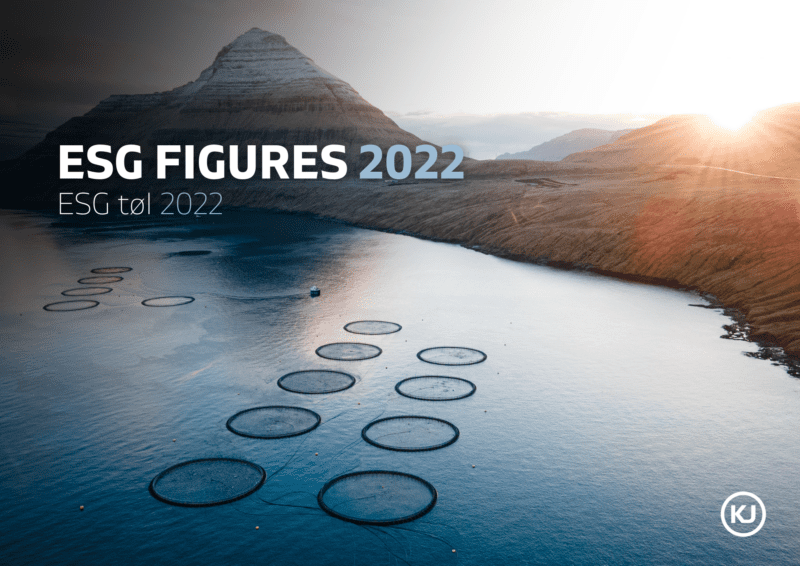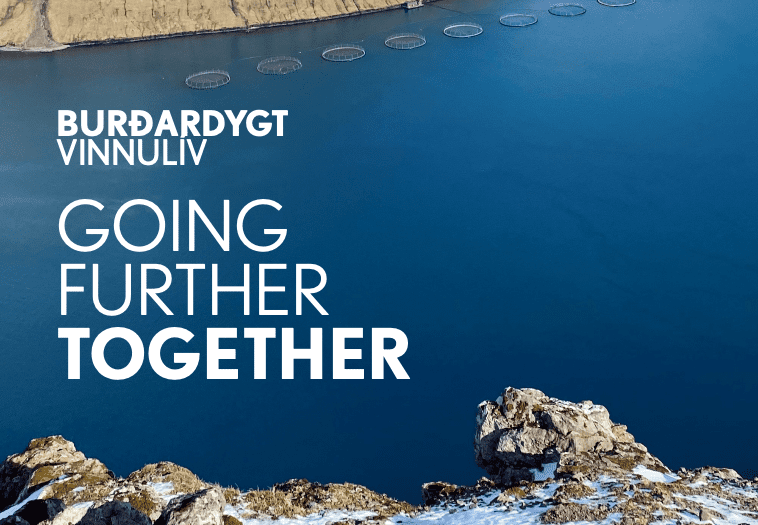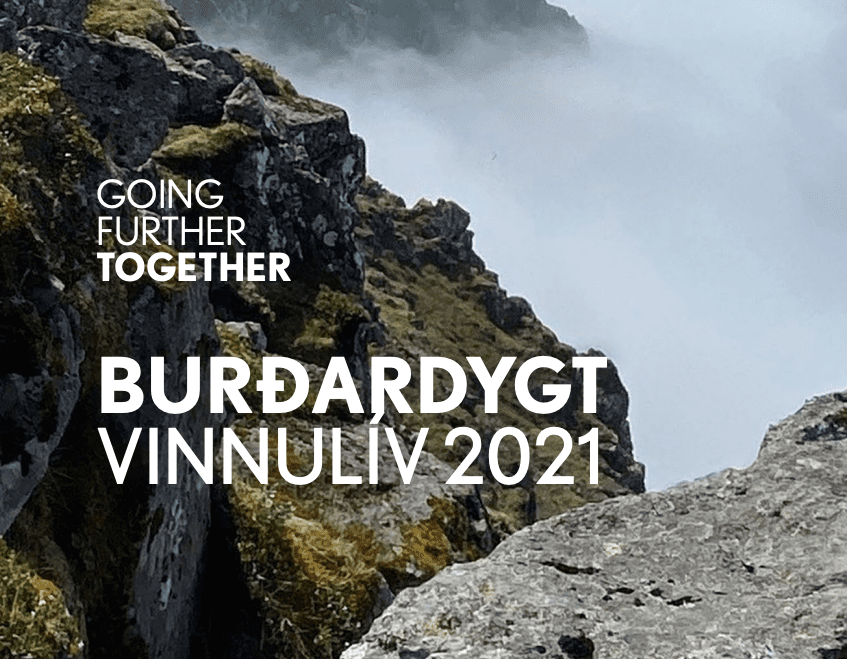
Reduce, reuse, recycle
Since joining Burðardygt Vinnulív we have completely changed our understanding of what sustainability means for us; better understanding both the risks and opportunities that issues such as climate change and biodiversity loss present for our business. With full support from our Board of Directors, we have begun the process of incorporating sustainability into our day-to-day work and planning, which is now done to a much greater extent than before. We recognise that integrating this way of thinking across the organisation is critical if we are to succeed with this agenda.
reduce, reuse, recycle
We work closely developing solutions for the aquaculture sector, this includes building pens used for salmon when they are at sea. Over recent years we haved been looking into opporunities to reduce, reuse and recycle the materials used for pens, wherever possible.
During production, we have started collecting the plastic shavings from the pens to be recycled. We have been recovering and dismantling the pens at the end of their life. As well as reusing some of the polyethylene pipes to build new pens, we are also sending some materials abroad for recycling.
Since 2019, we have reused 2,700 tons of polyethylene pipes and 5,500 m3 of polystyrene in our production of salmon cages. We have also sent 1,360 tons of steel and 362 tons of smaller plastic parts abroad for recycling into other products.
These figures represent around one third of all the materials used to produce pens the last three years. Our plan is to increase this share to minimise the demand on natural resources used for production and processing, and the potential pollution from their end of life.
biodiversity and ocean health
In 2021 and the beginning of 2022, we concentrated on developing a robust plan to meet our net-positive commitment to nature for the future. Minimising plastic waste in our production of sea farm cages has been one of our first priorities here. Also, our work recycling of polyethylene pipes for the aquaculture cages has also been a success. This is now being used extensively in the Faroe Islands and has also started in Scotland
climate change
In 2021, we began assessing our operational footprint to better understand where the greatest opportunities exist for us to reduce it. We initiated discussions with suppliers and took decisions to screen future investments with our carbon footprint in mind.
In 2022, we will be converting the heating systems in all our buildings to greener solutions and gradually transitioning our car fleet from diesel to electric powered vehicles. As well as reducing our own footprint we see a big opportunity to support our customers in reducing theirs. For example, in 2022, we will continue to offer solutions for our aquaculture customers to electrify their work boats.
scope 1, 2 og 3
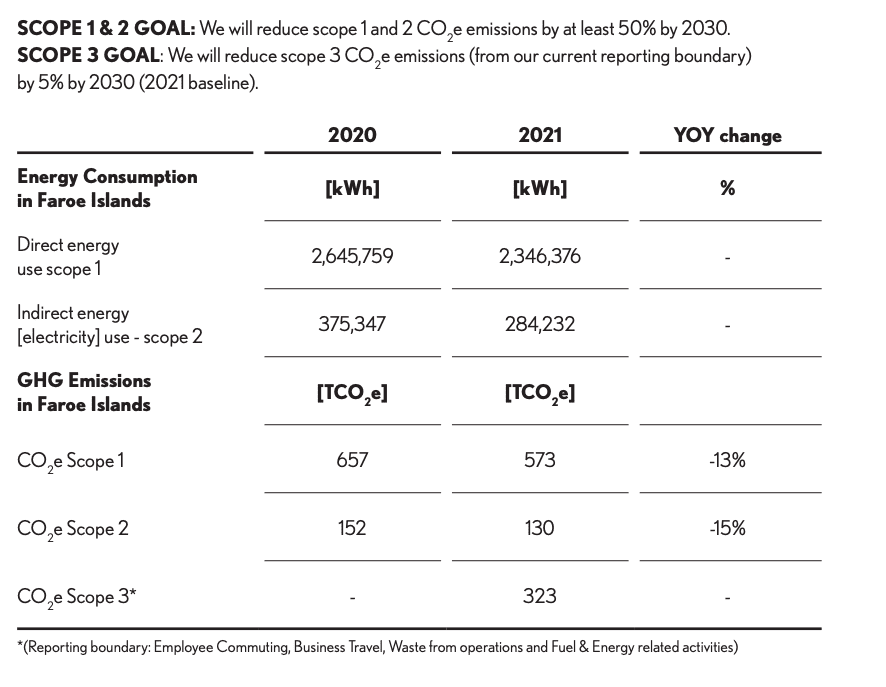
goals for 2030
